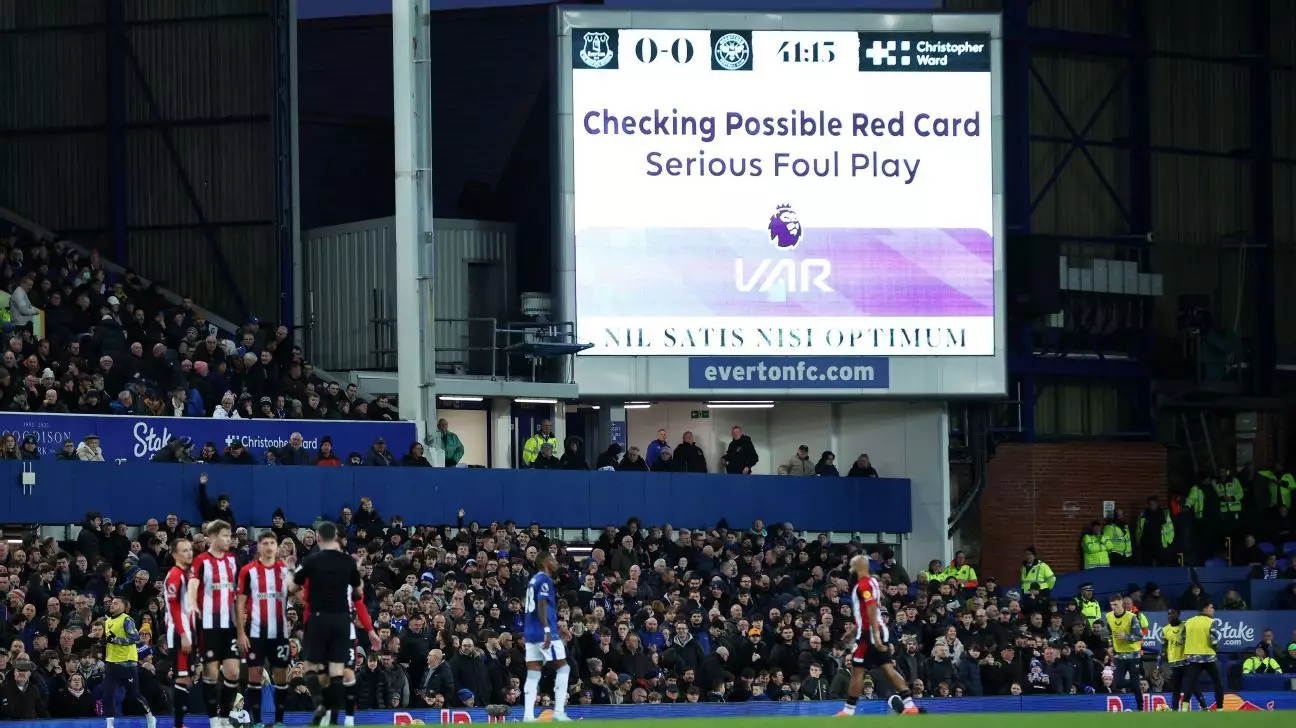In a dramatic turn of events, Brentford Football Club has succeeded in overturning the red card handed to Christian Nørgaard after a Video Assistant Referee (VAR) review during their tense goalless draw against Everton. The incident, which occurred in the 39th minute, raised a multitude of questions regarding the application of VAR in the Premier League. Nørgaard was controversially penalized for an incident involving Everton’s goalkeeper, Jordan Pickford, where he made contact with Pickford’s knee while attempting to reach a ball across the penalty area. The initial decision by referee Chris Kavanagh to not see a foul was swiftly challenged by VAR official Matt Donohue, who subsequently directed Kavanagh to reconsider the play, leading to Nørgaard’s dismissal.
Had Brentford’s appeal been unsuccessful, Nørgaard would have faced a three-match ban, which would have seen him miss crucial upcoming fixtures against teams like Leicester City, Aston Villa, and Newcastle. The implications of such a suspension could have been detrimental for Brentford, who are already grappling with the demands of a competitive League schedule. With the appeal won, Nørgaard will remain an integral part of the squad, allowing head coach Thomas Frank to retain his key players during a pivotal stretch of the season.
After the match, Thomas Frank expressed his disbelief and frustration towards the decision that he deemed unjust. His analysis of the incident revealed a coach who not only advocates fiercely for his player but also possesses a sharp understanding of the game’s nuances. Frank argued that Nørgaard had no malicious intent, as he was primarily focused on the ball and was merely trying to adjust his body position to make a play. He pointed out the need for “common sense” in officiating, urging referees and VAR officials to consider the spirit of the game rather than rigidly adhering to the letter of the law.
Frank’s remarks highlighted a broader concern about the reliability of VAR and the consistency of its implementation within the Premier League. It raises important questions: Are VAR officials equipped adequately to make such critical decisions? Are on-field referees losing their autonomy to a system designed to assist rather than take control?
This incident is emblematic of the ongoing debates surrounding VAR and its impact on match officiating. Many fans and pundits have criticized the technology for its occasional overreach, suggesting that it disrupts the flow of the game and creates unnecessary drama. The Nørgaard case underscores a recurrent theme in discussions about VAR—the fine line between ensuring fair play and maintaining the integrity of the game.
While the outcome of Brentford’s appeal brings a momentary sigh of relief for the club and its supporters, it simultaneously invites deeper reflection on the evolution of officiating standards in football. The footballing community continues to grapple with striking a balance between technological advancements and traditional values, making the Nørgaard case a salient point for future debates on the sport’s officiating framework. As for Brentford, they can now approach their forthcoming matches with confidence, knowing that their captain remains in the lineup.

